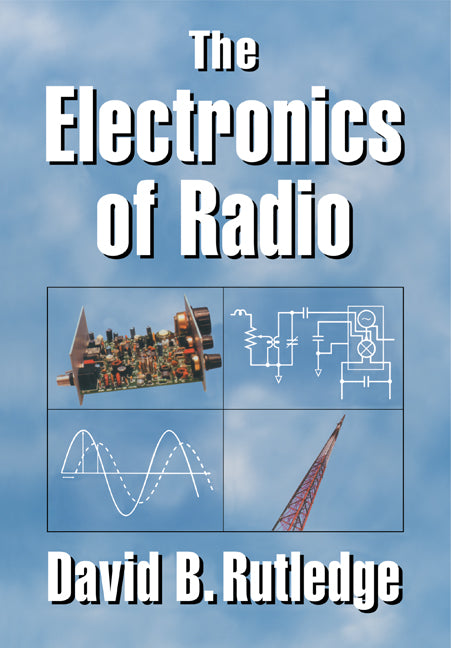Freshly Printed - allow 8 days lead
Couldn't load pickup availability
The Electronics of Radio
A stimulating introduction to radio electronics and wireless communications.
David Rutledge (Author)
9780521646451, Cambridge University Press
Paperback, published 13 August 1999
452 pages, 261 b/w illus. 10 tables 202 exercises
25.5 x 17.8 x 2.5 cm, 0.795 kg
"Overall, this text is worthy of serious study for the care with which it combines theory and practice, and for the scope of its development from lowly, Ohm's law beginnings to substantive radio design incorporating gain and frequency stabilization." Contemporary Physics
This fascinating book provides a stimulating introduction to analog electronics by analysing the design and construction of a radio transceiver. Essential theoretical background is given along with carefully designed laboratory and homework exercises. The author begins with a thorough description of basic electronic components and simple circuits and goes on to describe the key elements of radio electronics, including filters, amplifiers, oscillators, mixers, and antennas. Laboratory exercises lead the reader through the design, construction, and testing of a popular radio transceiver (the NorCal 40A). A diskette containing the widely known circuit simulation software, Puff, is included in the book. This was the first book to deal with elementary electronics in the context of radio. It can be used as a textbook for introductory analog electronics courses, for more advanced undergraduate classes on radio-frequency electronics, and will also be of great interest to electronics hobbyists and radio enthusiasts.
1. The wireless world
2. Components
3. Phasors
4. Transmission lines
5. Filters
6. Transformers
7. Acoustics
8. Transistor switches
9. Transistor amplifiers
10. Power amplifiers
11. Oscillators
12. Mixers
13. Audio circuits
14. Noise and intermodulation
15. Antennas and propagation
Appendices.
Subject Areas: Communications engineering / telecommunications [TJK]


